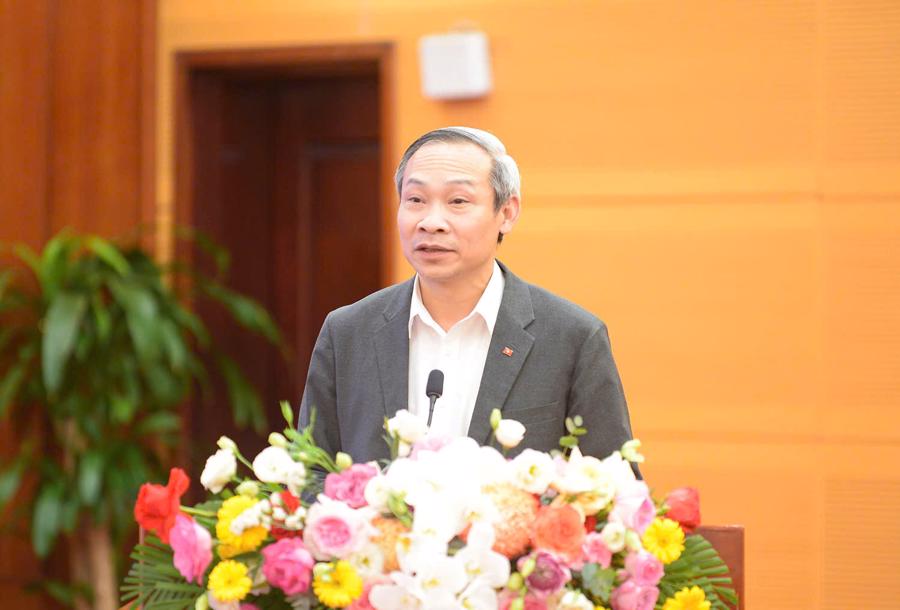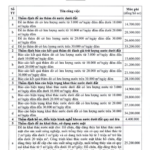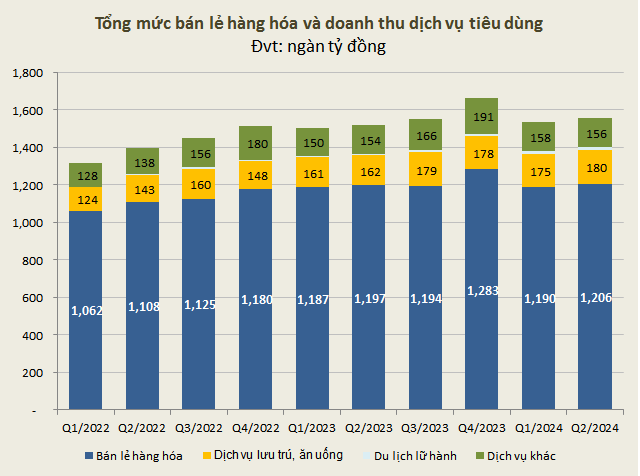## Forum Calls for Drastic Reforms to Support Businesses in Vietnam
Radical Reforms Needed in Both Thought and Action
At the 2025 Business Forum, with the theme “Empowering Businesses to Overcome Challenges and Enhance Competitiveness,” Mr. Phan Duc Hieu, a permanent member of the National Assembly’s Economic and Financial Committee, emphasized the difficulties businesses are currently facing, including institutional and non-institutional challenges.
To empower businesses to overcome these challenges and enhance their competitiveness, experts agreed that economic institutional reforms, improving the business environment, and providing incentives and support are key.
However, Mr. Hieu highlighted that in the context of a changing global and domestic economy, institutional reforms cannot be a one-time effort but must be continuous and ongoing. Furthermore, institutional reforms should not only aim to improve the investment and business environment, as in previous periods, but also strive for significant breakthroughs.

“Institutions are the only necessary tool to perform the function of state management. However, if the institutions are not well-designed, they can create barriers that impact the efficiency of business operations,” Mr. Hieu cautioned.
He provided evidence by pointing out that, in addition to the administrative procedures that we often see in the form of fees and charges, there are also significant compliance costs, such as land use fees and a 15-20% deposit when importing certain types of scrap, which are often overlooked.
Opportunity costs for businesses can also be substantial when a procedure is not completed on time, leading to potential contract cancellations by customers and investors. Delays in procedures can also affect loan disbursements, impacting production capabilities. Therefore, Mr. Hieu emphasized that institutional reforms should not only focus on reducing red tape but also on minimizing compliance costs.
“The pressure on businesses is immense and growing, and if reforms only aim to ‘improve the investment and business environment,’ it will not yield the desired results,” Mr. Hieu stressed. “Instead, we need a radical and bold approach to institutional reforms.”
Recalling the significant lesson from the Enterprise Law, Mr. Hieu argued that the Enterprise Law 2020 was not about improving the investment and business environment but about bringing about a breakthrough in both thought and action. Before 2000, the process of establishing a business could take up to six months, but surveys revealed that it often took two to three years, with some cases requiring permission from the Council of Ministers before registration.
“The prevailing mindset at the time was that businesses could only do what the state allowed,” Mr. Hieu explained. “The costs were astronomical, equivalent to bars of gold. As a result, only 50,000 enterprises were established and survived in a decade.”
With the enactment of the Enterprise Law 2020, however, the focus shifted from improvement to reform and a change in mindset. Establishing a business was no longer about seeking permission but about registering with the state, which had the obligation to acknowledge it. As a result, the time required for business establishment was reduced to just 15 to 30 days.
Furthermore, the previous law counted the time for completing procedures from “the date of receiving a valid application,” which meant there was no defined starting point. In contrast, the Enterprise Law 2020 introduced a breakthrough by counting from “the date of receiving the application,” mandating that even with adjustments, the process must be completed within 30 days.
“The mindset underwent a complete transformation, leading to the abolition of 160 licenses,” Mr. Hieu stated. “Consequently, just ten years after the Enterprise Law was enacted, it ignited a wave of entrepreneurial spirit. The number of enterprises established in just five years (from 2020 to 2025) was ten times higher than the previous decade, laying the foundation for the vibrant business community we see today.”
“Therefore, it is not about making adjustments; it’s about changing the entire mindset,” Mr. Hieu emphasized. He also recommended prioritizing the repeal of regulations, decrees, and laws that are inconsistent and unnecessary.
Establishing a Body to Oversee and Drive Institutional Reforms
According to Mr. Hieu, successful reforms rarely result from the proactive efforts of ministries and sectors. Instead, they are typically imposed from above and outside these entities.
Sharing reform experiences from other countries, Mr. Hieu noted that during the initial stages of their reform processes, countries often establish a specialized agency under the government with submission authority. These agencies are characterized by their expertise, independence, and authority to monitor and drive reforms.
For example, Australia has a Special Commission, South Korea has the Presidential Committee on Institutional Reform, the UK has the Council responsible for institutions, and the US has the Office of Information on Institutional Reform. These entities have the power to veto policy proposals that do not meet quality standards and proactively suggest reforms.
Drawing from this reality, Mr. Phan Duc Hieu proposed that, in the context of ongoing reforms and reorganization, the government should establish a body to oversee and drive institutional reforms for at least five to ten years. This body should have critical functions, including authority, expertise, independence, and strength.
When institutional reform becomes a culture (the fourth level of the reform tower), and when it becomes ingrained in the work culture of ministries and civil servants—not driven by pressure or external demands but by their intrinsic motivation to promote change—then this body will be dissolved.
The Prime Minister Chairs a Cabinet Meeting on Five Key Legislative Projects for Submission to the National Assembly
On the morning of April 18, Prime Minister Pham Minh Chinh chaired the second Government meeting on law in April 2025. The meeting discussed several important issues in preparation for the National Assembly…
The New Proposal: A Comprehensive Review of Water Usage and Extraction Fees
A proposal to increase fees for six water-related services, including extraction and usage, by a significant margin of 40-102%.
The six revenue-enhancing adjustments: Appraisal of groundwater exploration proposals; evaluation of exploration results and groundwater reserve estimates; assessment of current groundwater extraction practices; evaluation of large-scale groundwater drilling qualifications and credentials; appraisal of surface water extraction and utilization proposals; and finally, the appraisal of seawater extraction and utilization plans.
“Looking Back and Leaving a Legacy: A Journey Through TA’s Emotional Storytelling”
“TA nhìn lại & để lại” offers a glimpse into the life and legacy of Trần Mộng Hùng, the founder of ACB Bank. This exhibition is not just a showcase of artifacts and memories; it is an emotional journey that brings to life the stories, priceless possessions, and enduring legacies that shaped the bank’s growth and development.





















